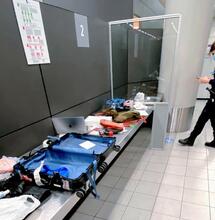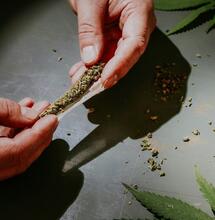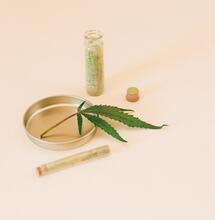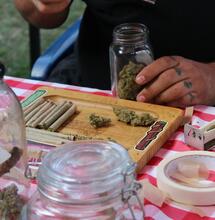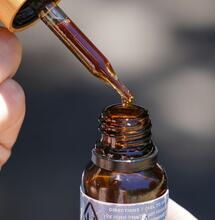Can Cannabis Users Donate Blood?
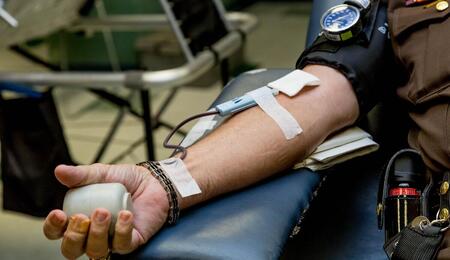
Almost 5 million Americans are recipients of blood transfusions every year. The reasons why someone may need a blood donation are various. It could be due to a severe injury or accident, surgery, or diseases such as anemia, cancer, hemophilia, liver or kidney disorders, severe infection, etc. Blood donations are crucial for securing the management of this important procedure. Donating blood can save someone's life. A person who donates blood must answer questions about their health, lifestyle, and travel history to determine if they are eligible to be a blood donor. Smoking cannabis is not a disqualifier from giving blood.
The use of Cannabis does not disqualify a person from being able to donate blood. However, if potential donors show up visibly high, they are unlikely to be accepted at the blood donation appointment. Potential donors cannot give blood if their use of marijuana impairs their memory or comprehension at the time when they show up to a blood collector.
The official stance of the American Red Cross is that while they do not encourage the use of any substance, including marijuana, cigarettes, and alcohol, none of it disqualifies a person from giving blood.
Potential blood donors are just asked not to show up while under the influence of a substance. The product potency doesn't matter. It doesn't make a difference if you're using a medium-strong flower or a more potent wax or dab. The instruction is simple: Just don't be high if you plan to give blood.
There are some concerns among users of synthetic marijuana. Types of non-prescription synthetic marijuana have been found to contain anticoagulants that might contaminate the plasma. Local blood centers are usually aware of when any such contaminants are turning up in their areas. They are also responsible for enacting policies on whether or not to accept whole blood, platelets, or plasma donations from persons who might use synthetic marijuana. Any such concerns among users should be communicated with the personnel working at the local blood-collecting centers.
Useful Things to Know and Remember:
- There is no data that tells how long a person should wait between smoking cannabis and making a blood donation. It's important NOT to be high when you attend a blood donation appointment.
- The Red Cross does not test blood donations for the presence of THC.
- Eligibility to donate blood is regulated by the U.S. Food and Drug Administration. The FDA does not require donated blood to be tested for THC.
- The acceptability of donation is up to local blood centers. All concerns about whether you are eligible to give blood should be communicated with the personnel at the blood-collecting clinic.
- A recipient will not fail a drug test if they receive the blood of a heavy marijuana consumer.
- For a cannabis user who wants/needs to donate platelets or plasma specifically, the guidelines are the same as when donating whole blood.
When Are You Not Eligible to Donate Blood?
Cannabis use is generally safe when it comes to giving blood. However, other instances may result in deferring a person from completing a blood donation. Possible disqualifiers can include:
- Feeling sick or suffering an acute infection ahead of your blood donation appointment
- Having an active heart or lung disease
- Having high blood pressure at the time of donation
- Being pregnant or having given birth within the past two months
- The use of illegal injection drugs
- The use of injection drugs that are not prescribed by your doctor
- The use of medications for specific conditions, including psoriasis, enlarged prostate, multiple sclerosis, etc.
- The use of blood thinners such as warfarin and heparin
- Testing positive for HIV, or hepatitis B or C
- Past patient with leukemia, lymphoma, or other cancers affecting the blood
- Recent travel history in areas with high chances of contracting malaria or other region-specific diseases
- Recent blood transfusions in other countries overseas
You should discuss all of these things when you arrive at the clinic or while making an appointment to determine if you can step up as a blood donor.
It may turn out that the use of certain medications may lead to a permanent ban from being a blood donor. For some prescription drugs that have entered your system, you may need to wait additional time before being able to give blood.
The Red Cross encourages all eligible donors who feel well and healthy to approach local blood-collecting centers and donate blood.






